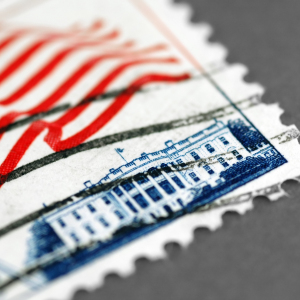The U.S. Postal Service (USPS) has been an American institution for more than 200 years. The framers of the Constitution established “that every person in the United States – no matter who, no matter where – has the right to equal access to secure, efficient, and affordable mail service.” If Benjamin Franklin or James Madison were alive today they would be taken aback by what this agency has become. Constant financial troubles, a lack of leadership and no direction now more closely describe the state of the USPS. Taxpayers should be concerned that a USPS bailout like the ones for the auto industry and banks could be close on the horizon.
The original mission of mail service has given way to speculative endeavors that compete with American small businesses. The USPS is also delivering mail 7 days a week to keep up with holiday demand. This is more of a gimmick that could end up costing taxpayers millions of dollars rather than serving as a smart business move.
The price of first class mail has jumped so the agency can dabble in untested arenas like “Customized Delivery.” The agency is spreading itself too thin and venturing into unchartered waters that are only helping to exacerbate its demise.
A recent Washington Post editorial stated that Congress has the opportunity to make reforms that will work to save the USPS. But articles and chatter about bipartisan agreements over emails and phone calls are nothing more than hot air. A hard-lined effort is needed from all members of leadership that are responsible for the Postal Service. The way to restore its solvency isn’t through tough talk, but through tough action.
Trying to make up for the steep decline in mail volume – and with it a decline in first class mail revenue – the Postal Service is steering away from its original mail delivery mandate and into questionable new concepts. The USPS and Amazon have teamed up to bring Americans their groceries. These untested markets are a dangerous venture for an agency that has been losing billions of dollars each year. The agency should instead be looking for ways to climb out of this hole they have dug themselves, not dig deeper.
This relationship also works directly against the fairness of market competition. The USPS is a government agency that is allotted certain benefits because they are a monopoly. These benefits allow them to save on costs that private businesses, both large and small, have to pay – thus allowing the USPS to undercut the market and “crowd out” other businesses.
While attributing poor outcomes to failures of leadership are sometimes difficult to distinguish, the case of the Postal Service is crystal clear. The head of the Postal Regulatory Commission (PRC) – the group that monitors the agency – deserves much of the blame. Chairwoman Ruth Goldway has been in her position for far too long and her continued appointment to the Commission is indicative of the ineptitude of this administration and its predecessors.
Chairwoman Goldway has traveled the world attending junkets and conferences while the Postal Service incurs billions of dollars in annual losses. In short, she has overstayed her welcome. New leadership is needed to lead the agency and forge a new and more responsible course of action in order to fix the problems that have long-plagued the agency.
With the new Congress ready to be sworn in, there is a glimmer of hope that real reform can still happen. The USPS needs to be saved, as it is an important hallmark of the American tradition. But, continued inaction will only lead to more losses and further trouble.
The USPS will soon reveal its fiscal year 2014 revenue results. It is expected to once again show a multi-billion dollar loss to go along with losses over the last four years that total close to $35 billion.
Grocery delivery and seven-day-a-week holiday delivery will not save the USPS. Consolidating post offices and halting Saturday delivery are the first steps on the path to real reform. And, restructuring and refocusing the agency back to its original charge is the only way to get it back to financial solvency.
If meaningful decisions are not made and the Postal Service continues to suffer financially, it could be headed for the same fate as the auto industry and banks – another taxpayer bailout. Americans are painfully aware that no industry is “Too Big To Fail.”

